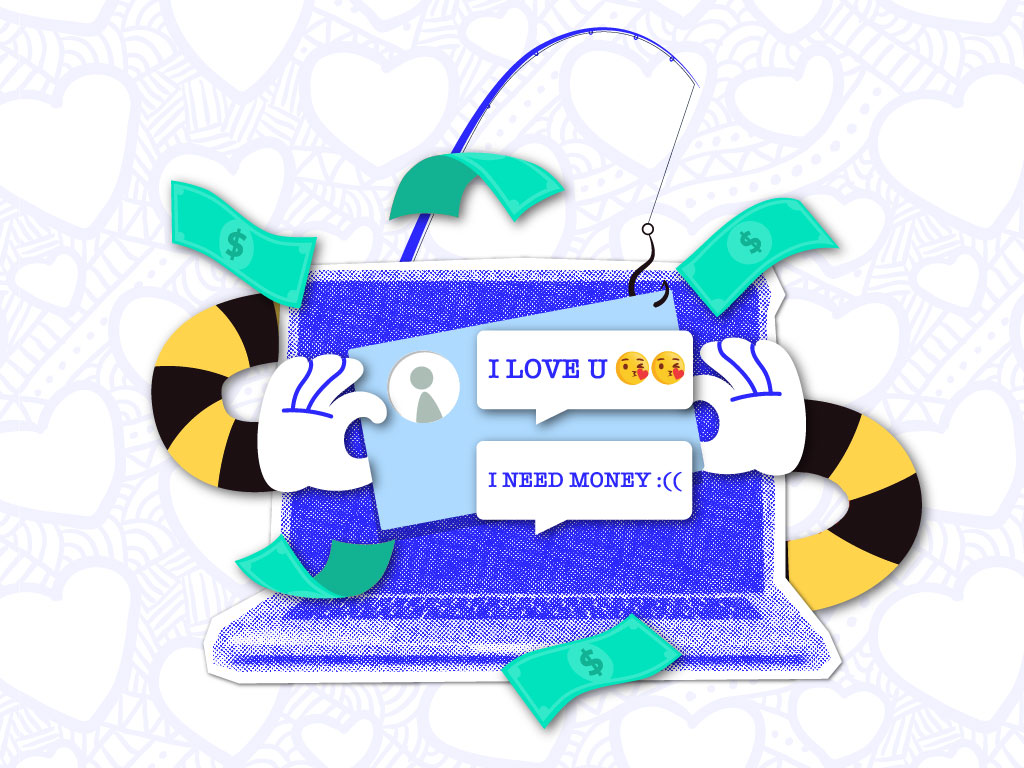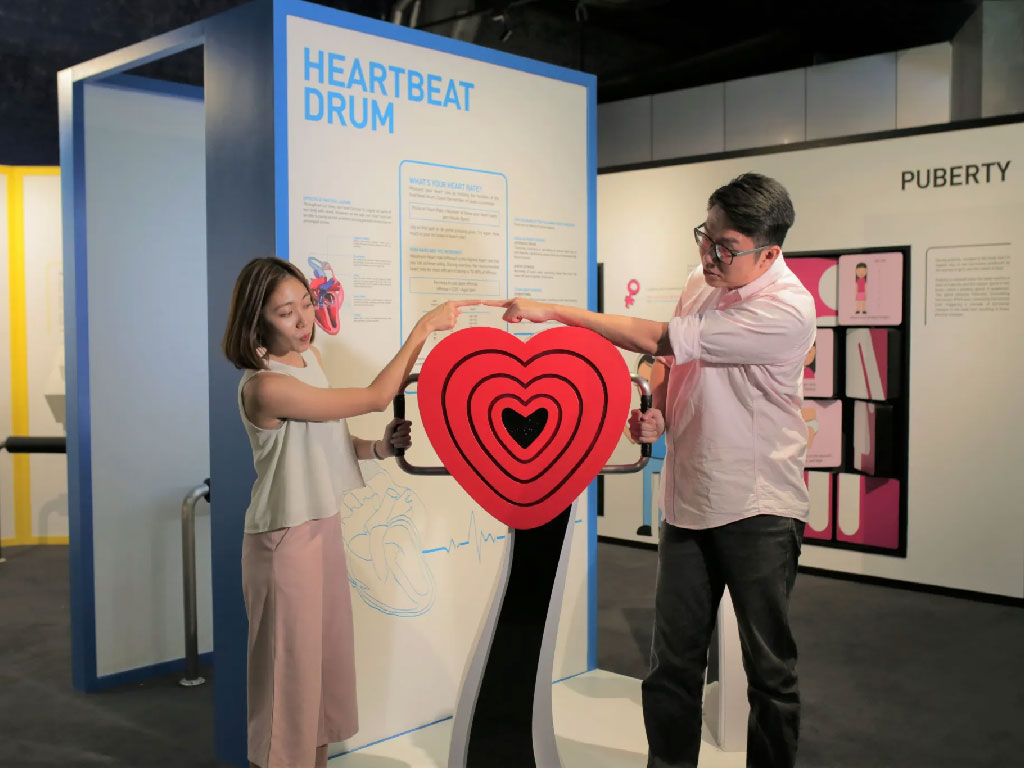Love in the Age of Algorithms
Cupid's arrow, gone digital. We talk to a psychologist and a dating app CEO to decode the phenomenon of online dating.

Did you know that online dating apps experience a surge in activity after the holiday season? Forget jingle bells and mistletoe: think notification sounds and direct messages (DMs) instead. In this feature, we’ll explore the psychology and technology behind the dating platforms that are rewiring romance in the 21st century.
Modern Romance

Although online dating sites like eHarmony or OkCupid were somewhat ostracised in the early ’00s, online dating has become more common.
One of my colleagues met her husband on Coffee Meets Bagel. Another married couple I know met through a Facebook hobby group.
It’s not just my social circles: more people in Singapore are finding their significant others online.
To learn about this modern phenomenon, Void Deck corresponded over email with Dr. Jean Liu (Founder of Insights Bridge Consultancy and Adjunct Assistant Professor, Yale-NUS College and NUS Yong Loo Lin School of Medicine) who taught a module at Yale-NUS College on online dating.
“In a 2021 survey of 2848 singles, the National Population and Talent Division found that 1 in 3 respondents who were dating had met online – up from 1 in 10 a decade before,” Dr. Liu explains.
According to the same survey, openness towards dating sites or apps jumped from 19 per cent in 2012 to 58 per cent in 2021. With growing awareness and acceptance of such platforms, online dating has become part of mainstream culture.
COVID-19 restrictions only accelerated the popularity of online dating, with dating apps like Paktor reporting a “10 per cent increase in new users” during circuit breaker and that “Singapore users spent 10 times longer on the app than they did before the pandemic.”
While some people may have resorted to dating apps while it was difficult to meet face-to-face during the COVID-19 pandemic, online dating seems to be here for good.
Even our slang is changing to reflect relationships mediated through our devices (thanks, Gen Z). Have you been on the receiving end of “ghosting” – when your crush cuts off all contact and suddenly stops sending you messages? Or perhaps your friend “soft-launched” their partner on Instagram with ambiguous photos of their mysterious new beau, such as matching coffee orders or linked hands.
“We’ve come a long way: in our grandparents’ generation, it was customary to be matchmade by trusted individuals,” writes Dr. Liu. “In an age of smartphones, however, the norms of how we meet partners have changed … digital technologies have expanded the means by which we search for partners.”
Behind the Screen

What exactly goes on behind the screen of popular dating apps, though, and how do our phones and computers play matchmaker?
To better understand how dating apps function, Void Deck communicated over email with Alex Tam, Group CEO of Paktor Group.
Paktor Group is a local dating and networking app operator that expanded from Singapore to become the largest social dating group in the Southeast Asia and North Asia region. The group has attracted over 50 million users across its online and offline dating products, which include Paktor and GaiGai.
Paktor Group, which takes its name from the Cantonese word for dating, began with Paktor, a Singapore-founded dating app originally marketed to local users in 2013.
“The swiping mechanism for Paktor is generally similar to that with other dating apps – left swipe is not interested and right swipe means interested. Singles will only be connected when they mutually swipe right on each other,” Tam explains.
Users can select certain filters to find their desired partner. Some filters seem fairly obvious—Tam points to factors such as age and height—but the Paktor app development team found other variables that are important for singles in Asia.
For instance, the team “discovered through our users that Horoscope is
useful for users in deciding whether or not to swipe, especially in countries
like Taiwan,” Tam states.
Designing specifically for Asian users has paid off. “We see more locals
using our dating apps compared to our [Western dating app] competitors
… we also have localised functions, such as the gifting of local stickers
depending on your location i.e. gifting a Taipei 101 or bubble tea sticker
when the user is located in Taiwan,” Tam states.
Paktor uses geolocation data to “[push] suitable profiles closer to the user based on his/her location” since Tam finds most users “have a preference for matches who work/stay near them, giving them more opportunities to meet up.”
Taking it to the Next Level

Geolocation data could be key in helping take online dating apps to the next level. One of the biggest challenges to the legitimacy of such dating platforms are love scams. Geolocation data can “flag out scammers at work swiping from another country,” Tam explains.
“We expect to see more efforts in this area to protect real singles such as more thorough user verification steps,” he adds.
Similarly, Dr. Liu predicts that “addressing scams and other security-related issues (e.g., privacy, transparency) will continue to be at the forefront of app development.”
This is a hot topic as Dr. Liu cites, “in 2022, 868 internet love scams were reported in Singapore – a tenfold increase from one decade ago (where only 81 cases were reported).”
Along with improved security, Dr. Liu sees the future of online dating including more “live interaction” features rather than text-based chats.
“App users and researchers have long lamented that swiping and chat functions aren’t enough to work out whether two people would hit off,” Dr. Liu writes. “A growing number of dating apps have started offering video functions … allowing users to work out more quickly whether they’ll be a good match.”
Another fascinating trend includes the integration of artificial intelligence in online dating. Dr. Liu points to “AI dating assistants who serve as coaches for the dating experience.”
Tam writes that online dating “will continue to ride on new technologies such as Generative AI, Machine Learning, etc to help singles connect better with potential matches on these platforms,” as the goal is to make the apps like Paktor “more efficient, reducing the amount of work required for each user to eventually find the right match.”
That’s what Dr. Liu alludes to as “‘holy grail’ project for online dating”: a “[refined] prediction model” or effective algorithm that accurately pairs users with their desired partner.
Think Cupid’s arrow, sent by a computer program.
Tips for Singles

While dating apps certainly provide more opportunities to meet “The One,” an all-powerful Cupid’s Code is still the stuff of science fiction.
Singles ready to mingle (online) need to brace themselves to search for their soulmate through trial and error.
“Online dating often requires users to swipe many times and converse with multiple individuals before getting a date,” Dr. Liu states. “In the online world, you’re likely to give up quickly if you think you’re searching for just one perfect partner.”
She suggests, “having a growth mindset towards love could be beneficial, because you’re more likely to persevere in the journey and to give a wider range of individuals a chance.”
Dr. Liu especially recommends meeting in real life (IRL) “as soon as you can … that’s one sure-fire way to know if you’ll hit it off or not.”
“Research has found that a large part of ‘hitting it off’ has to do with the interpersonal dynamics when two people meet. It’s hard to get a sense of these dynamics online! If you’re using an online platform and have been matched, it’s wise to switch quickly to a video call or meet-up in person,” she elaborates.
But how do you find potential partners to meet up with in the first place? We asked Tam for some practical tips or “hacks” for singles setting up their online dating profiles.
“Firstly, users should have at least 3-5 quality photos on their online profile, each showing a different side to this person, e.g. we see that men with a photo of them doing sports improve their attractiveness score,” Tam advises.
“They should also complete their online profile so that the matching algorithm would prioritise their profiles as they are deemed sincere/real,” he adds.
One last nugget of wisdom from Tam: “it is not advisable to swipe right on every profile! Such behaviours are common among scammers and are automatically assigned red flags on such profiles.”
Celebrate Love at Science Centre Singapore

Want to invite your match to meet up in person? Go on a quirky, chemistry-filled date at Science Centre Singapore to continue the conversation IRL.
Prefer something more electrifying? Let sparks fly with your significant other as you watch tesla coils light up during our Energy Titans Show.
Afterwards, you can even imagine growing old with your partner at our Dialogue with Timeexhibition and take a cute wefie with the heartbeat drum there.
Written by Jamie Uy
Illustrated by Jansen Michelle
This article was originally published in Science Centre Singapore's previous blog, I Saw the Science, on 14 February 2024. The article has been republished with new graphics and lightly edited for Void Deck.
Last updated: 1 November 2024

